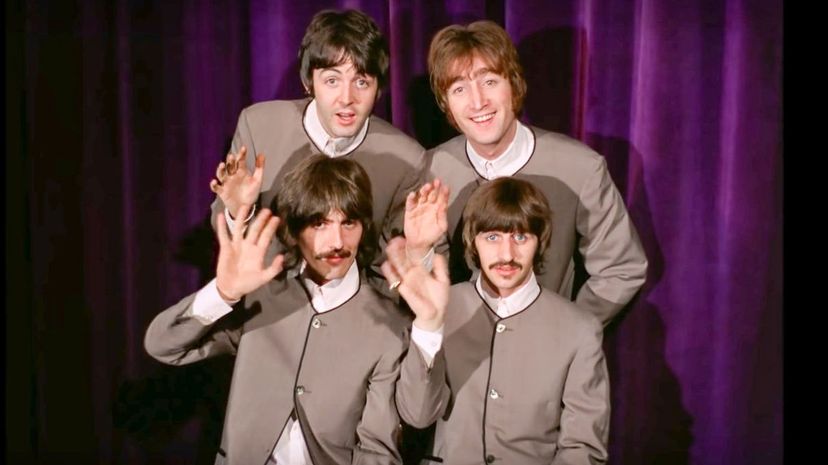
About This Quiz
The Beatles are the most famous band of all time. Even if you tried your hardest to never hear a Beatles song or hear anything about the Beatles, it would be impossible. The group started in Liverpool, and they were mostly unknown for a few years as they played local spots in Europe. The band had a fifth member, Stuart Sutcliffe, who played bass, but when he left the band, Paul McCartney switched to bass, and the Beatles continued with only four members.
John Lennon, Paul McCartney and George Harrison had been rocking together since 1958, and they asked Ringo Starr to join them as a drummer in 1962. By 1963, "Beatlemania" was in full swing. The group mixed rock with pop, jazz, blues, reggae and British flair to create a new style that took the world by storm. The Beatles first arrived in American on February 7, 1964. They performed on "The Ed Sullivan Show," with about 73 million viewers tuning in, which was the largest television audience ever at the time. The band played two concerts and returned to the "Ed Sullivan Show" that month, and that's all it took to change music forever.
Before long, the Beatles held the top five spots on the U.S. music charts. They're the only band in the history of the world to have two self-replacing No.1 hits (for a total of three in a row) on the Billboard Hot 100. They sold more albums than any other artist and have had more No.1 hits than any other artist in history. Can you name these Beatles songs from just one line?
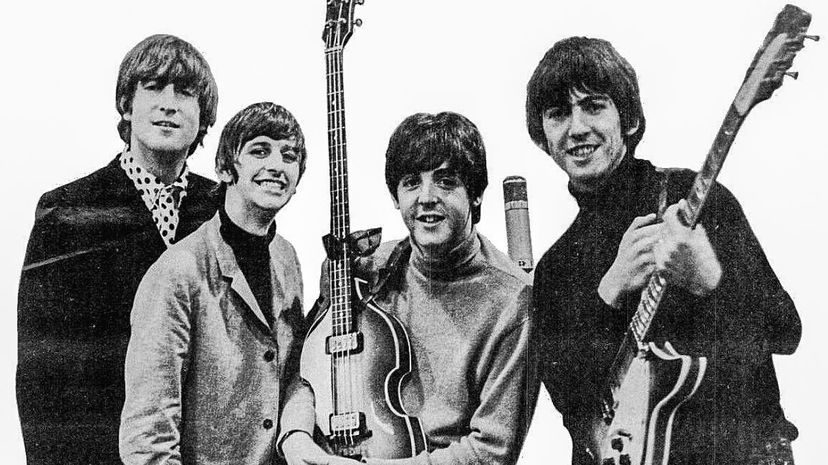
"Yesterday" was released in 1965 and was the first song by the Beatles to feature only one member of the band as vocalist: Paul McCartney. McCartney wrote the song along with John Lennon, and it's recognized as one of the most covered songs ever.
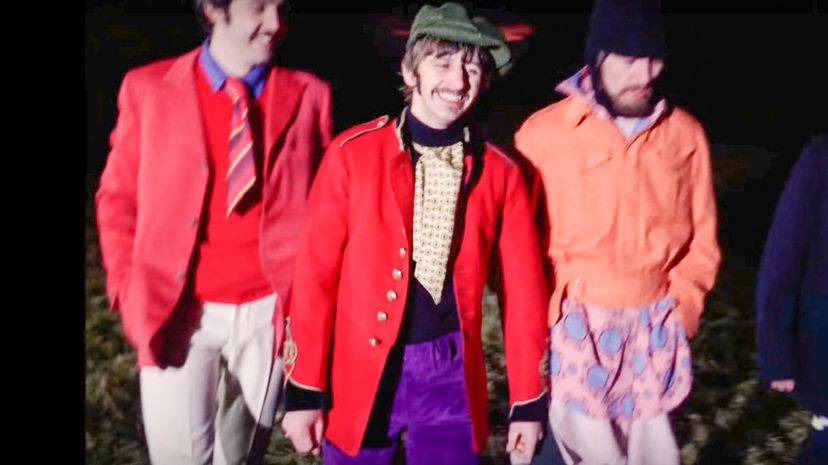
George Harrison may be the least famous member of the Beatles, but this 1969 hit is one of the band's most popular to this day. Harrison wrote the song while visiting Eric Clapton at his home in Surrey, England.
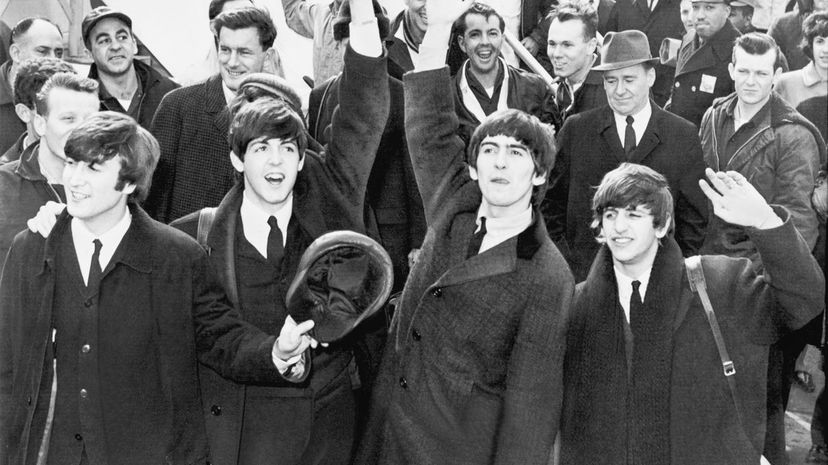
John Lennon wrote this song in 1969 because Harvard professor Timothy Leary decided to run for governor of California and asked Lennon to write a rally song. Leary ultimately did not use the song, so Lennon and McCartney tweaked it, and it became the biggest hit on the "Abbey Road" album.
Advertisement
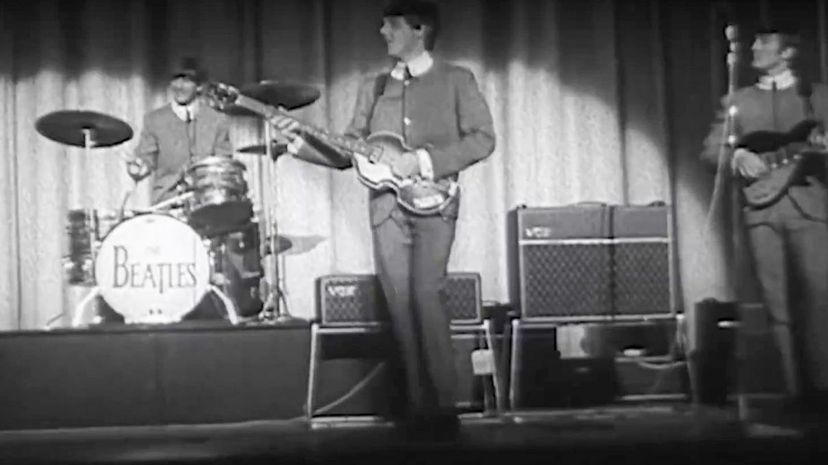
"Eleanor Rigby" was released in 1966 on the "Revolver" album. Paul McCartney wrote the song mostly from his imagination. The name "Eleanor" was inspired by an actress, and "Rigby" was part of the name of a store he walked past one day.
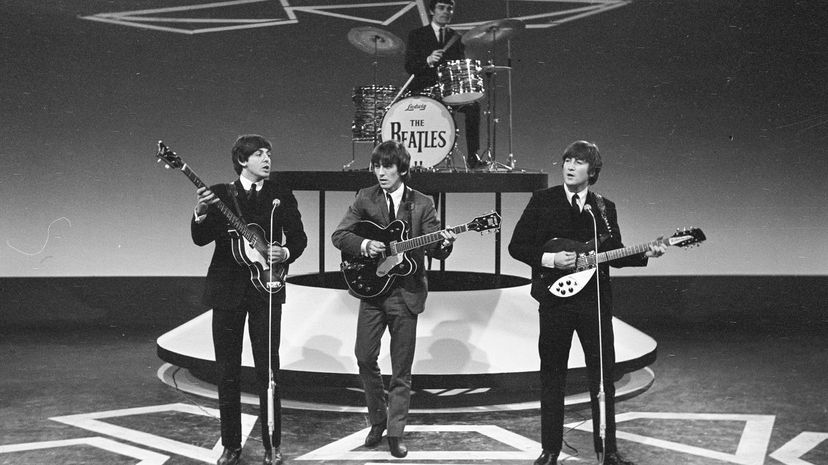
This is another hit song written by Paul McCartney. John Lennon divorced his first wife and cut off communications with her and their son Julian, so McCartney wrote this song to Lennon's young son. The song was released as a single in 1968.
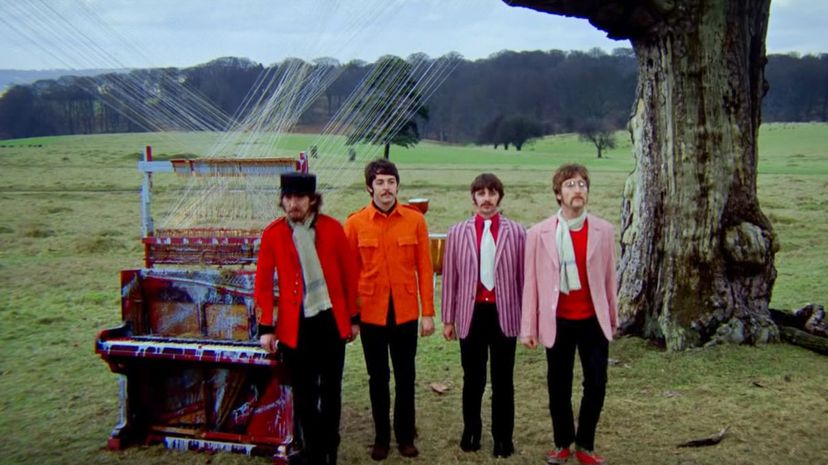
The opening of the song is about Tara Browne, the 21-year-old heir to the Guinness fortune, who died in a car accident in 1966. In a newspaper that carried the news of Browne's death, there was also a reference to potholes in the streets of Blackburne, Lancashire.
Advertisement
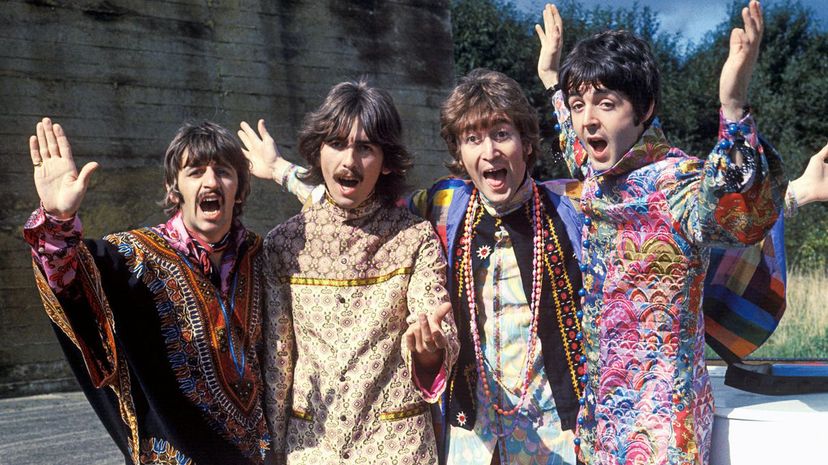
Paul McCartney wrote this song in 1968, and it was based on the name of a local reggae band. Nobody in the band liked the song, and John Lennon hated it. McCartney wanted to release it as a single from "The Beatles" (White Album), but everybody said no.
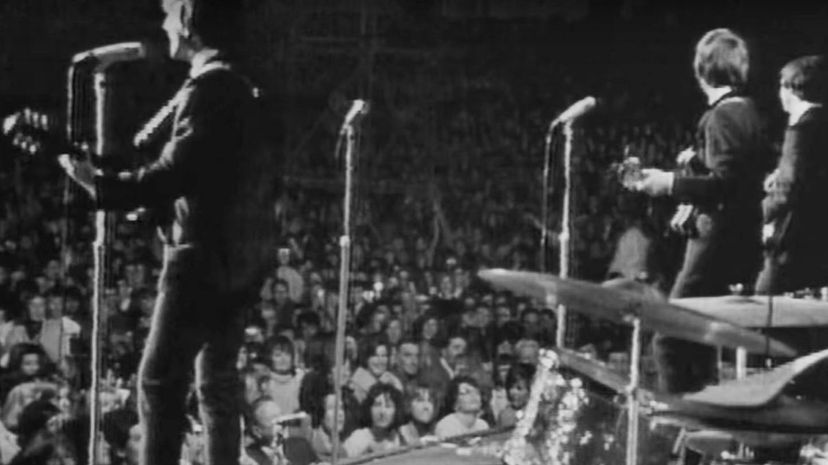
This is another hit by Paul McCartney that John Lennon hated because he thought it was meaningless. It was released as a single, and it stole all the limelight from Lennon's "I Am the Walrus," which was on the B-side of the record.
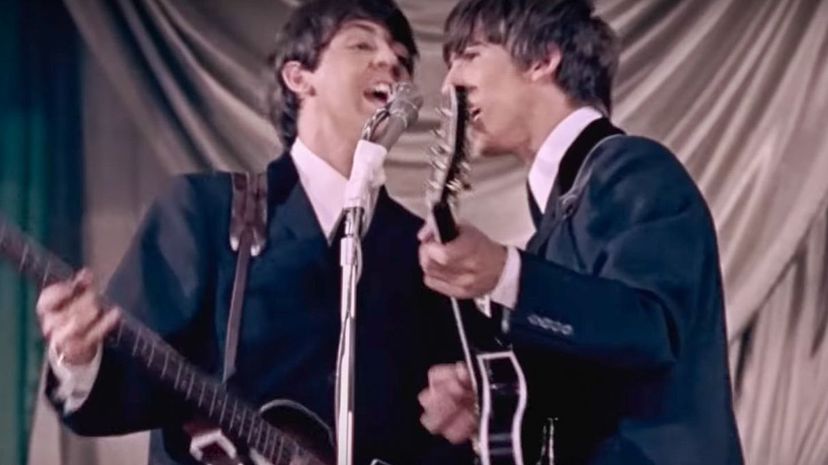
This hit was the band's fourth single and the first hit to catch fire in the States. This single from the "Meet the Beatles" album was released in 1963. The Beatles visited America for the first time soon after, in 1964.
Advertisement
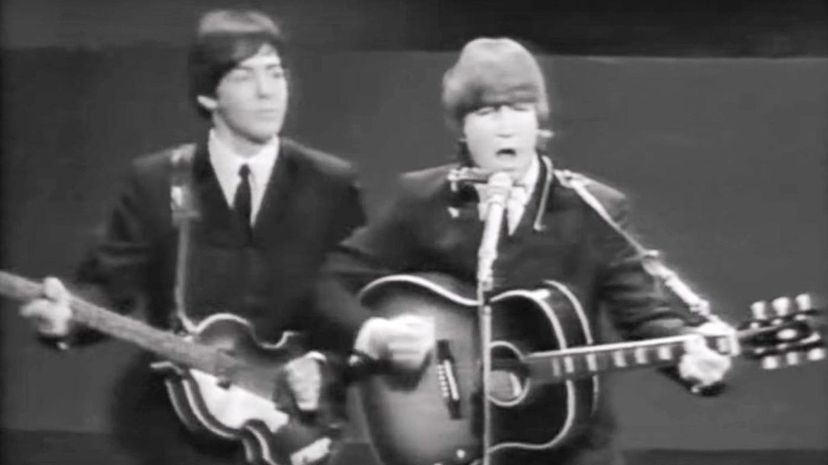
According to the Beatles, this a children's song. Paul McCartney wrote most of the lyrics. "Yellow Submarine" was released in 1966 on the "Revolver" album.
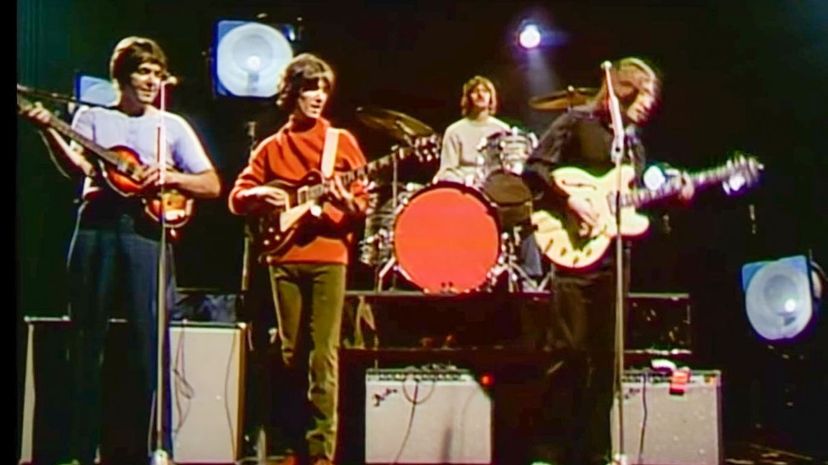
This song was written by George Harrison and released with "Come Together" as a double A-side single. Frank Sinatra called it the greatest love song ever written, but Harrison said he had no one in mind when he wrote it.
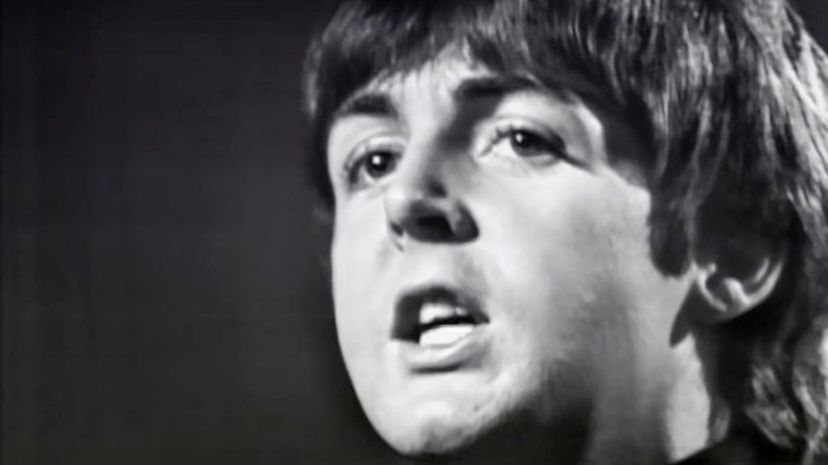
John Lennon wrote this song, and it was released in 1965 on the "Rubber Soul" album. The song is autobiographical and indirectly refers to Stu Sutcliffe, who died in 1962. He was an original member of the Beatles before leaving to pursue a career as an artist.
Advertisement
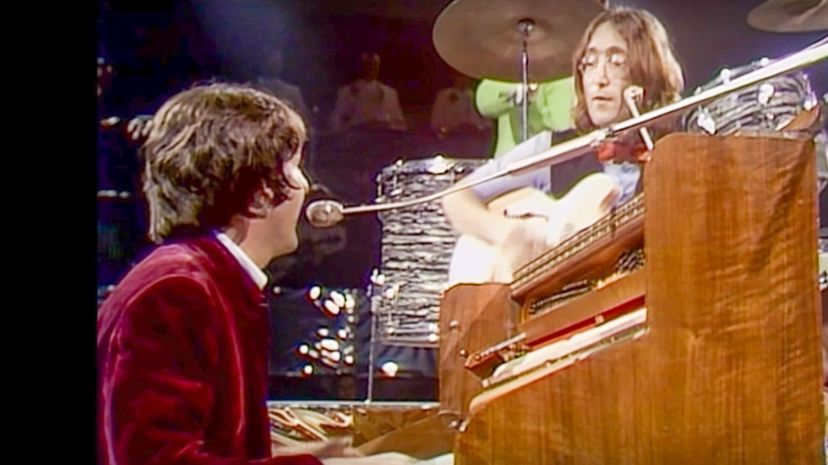
John Lennon hated the religious overtones of this song so much that he placed "Maggie Mae," a song about a prostitute, directly after it on the album. However, "Mother Mary" refers to Paul McCartney's mother Mary, who died when he was a teen.
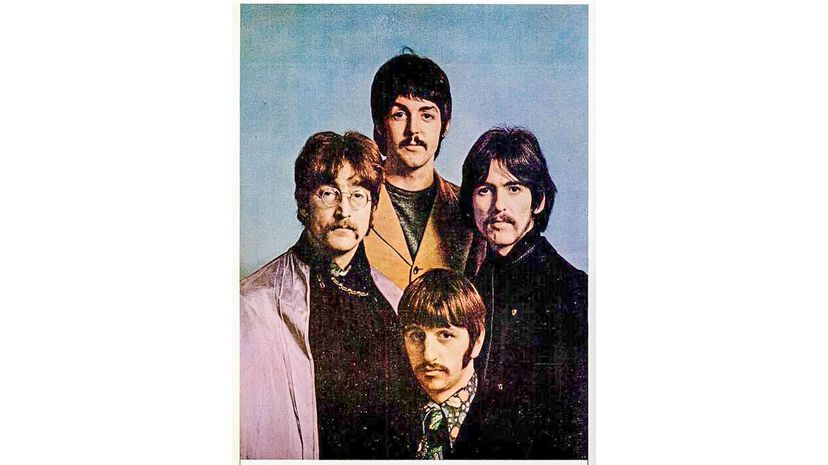
John Lennon lived in the Dakota building in NYC - that's where he was shot and killed. Fans can visit Central Park across the street and find a Strawberry Fields memorial in honor of the musician.
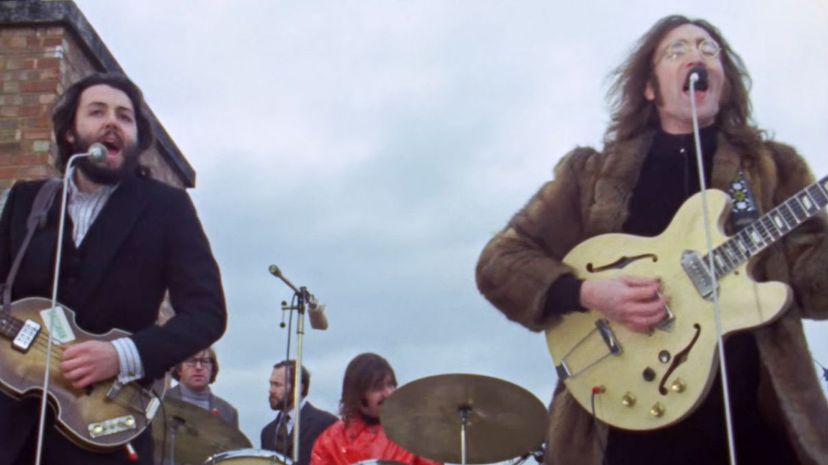
This song was released in 1968 on the so-called "White Album," and George Harrison had to fight to have it included. He even brought his friend Eric Clapton to the studio to help record the song. Clapton played lead guitar but wasn't credited.
Advertisement
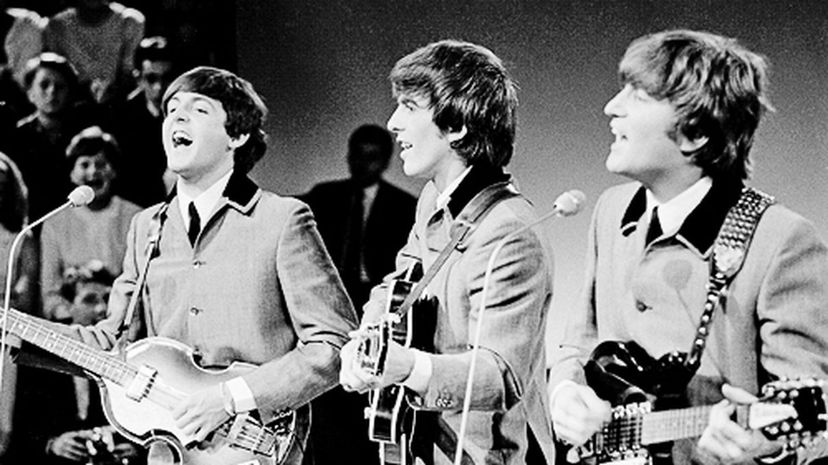
John Lennon wrote this song, and the title was a saying coined by Ringo Starr. The song, released in 1964, inspired the title of the band's first feature film. "A Hard Day's Night" hit American theaters just as the band's popularity was exploding in the States.
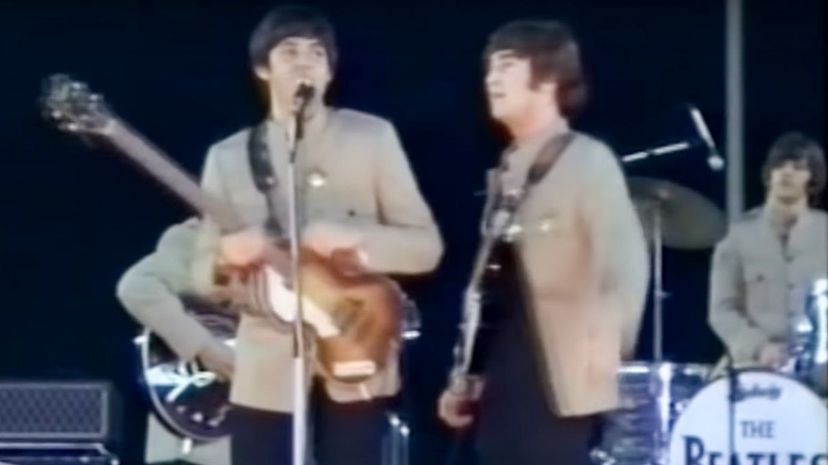
John Lennon said he wrote this song while the band was on a meditation retreat in India. It was released in 1968 as the band's response to the Vietnam War. Both a fast and slow version of the song were released.
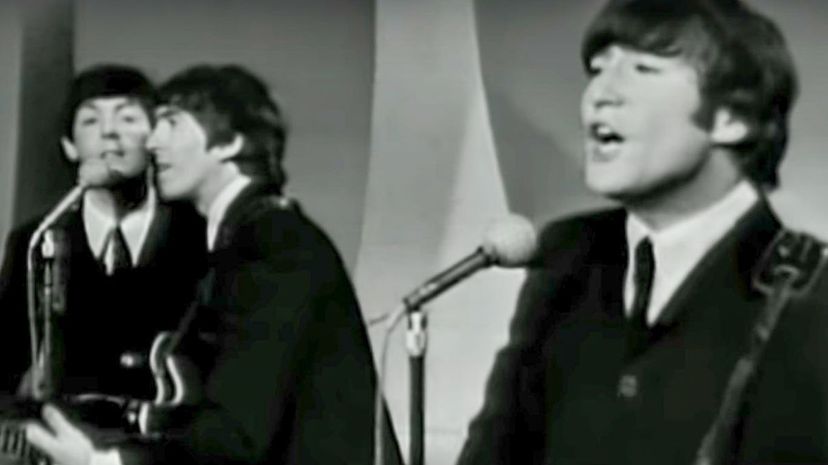
Paul McCartney and John Lennon wrote this song in 1962, and it was released in 1963 on the "Please Please Me" album. This was one of the songs the Beatles performed in 1964 on "The Ed Sullivan Show." The performances made them superstars in America.
Advertisement
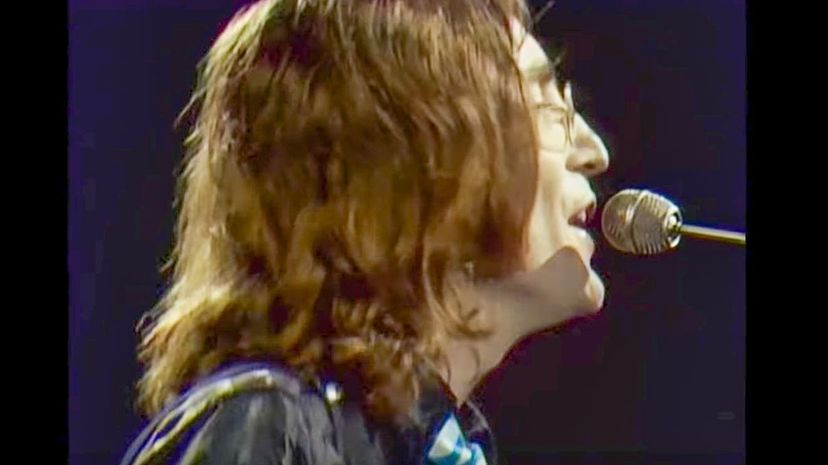
This Beatles hit was released in 1963 on the "Please Please Me" album. It was a cover version of a hit song by the Isley Brothers. "Twist and Shout" went on to become one of the band's most popular songs, frequently played at the end of concerts.
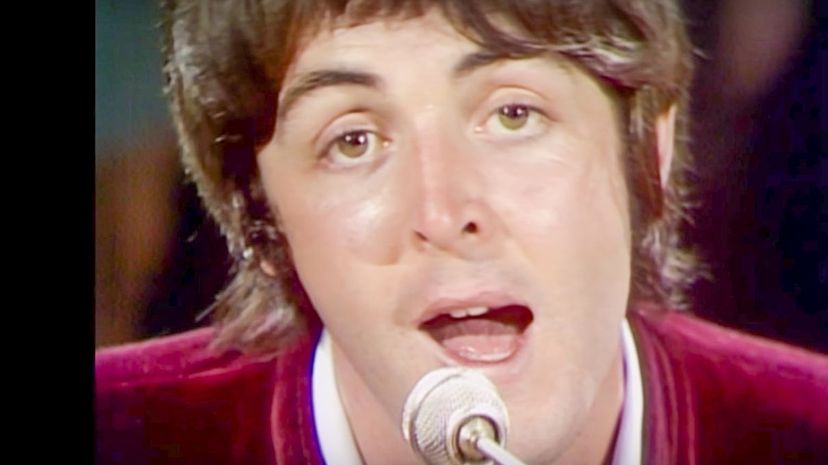
The Beatles had 20 No.1 hit songs in their career, and only two of them were one-word titles: "Yesterday" and "Help!" This song was released on the eponymous album in 1965 and was also the title of the band's second feature film.
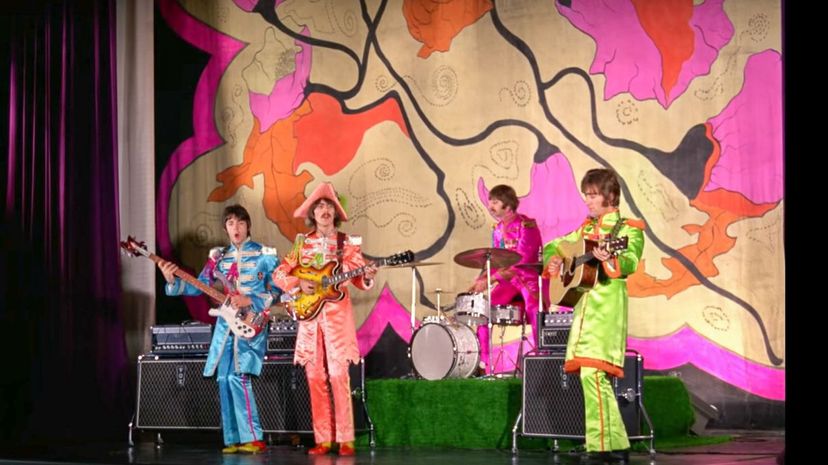
This is a song title based on a Ringo Starr saying. The popular expression is "Tomorrow never comes," but Starr always used to say "Tomorrow never knows" instead. John Lennon wrote the song and called it his first psychedelic song.
Advertisement
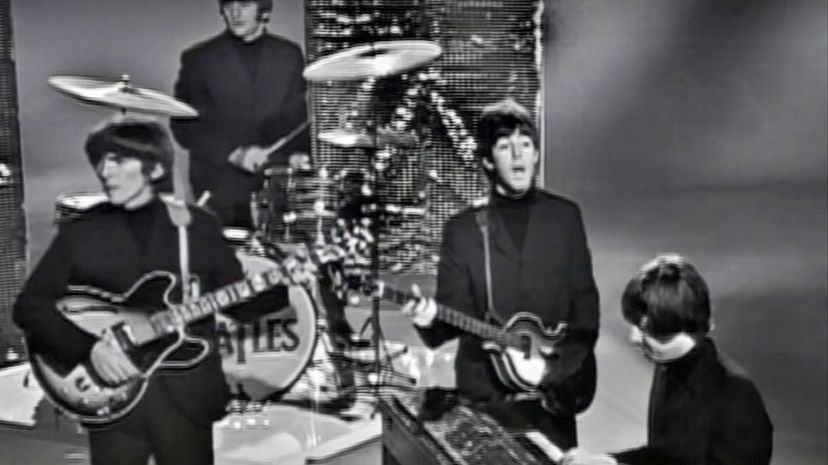
"All You Need Is Love" was released on the "Yellow Submarine" album in 1967. The title was a popular rally cry of anti-war protesters of the 1960s, and the year 1967 was known as the "Summer of Love."
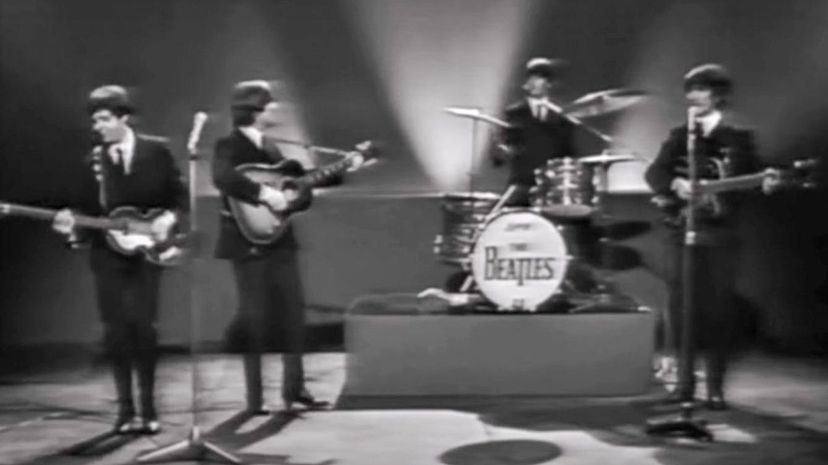
"Norwegian Wood (This Bird Has Flown)" was released in 1965 on the "Rubber Soul" album. It's a humorous song about a man who's trying to sleep with a girl but ends up setting the house on fire instead.
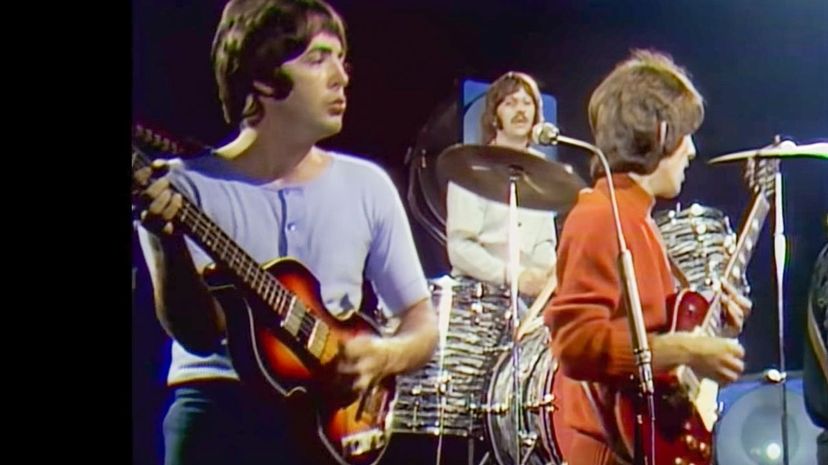
This song was released on the so-called "White Album," and both John Lennon and Paul McCartney said it was their favorite song on the album. The title came from an article in a rifle magazine that Lennon thought was crazy.
Advertisement
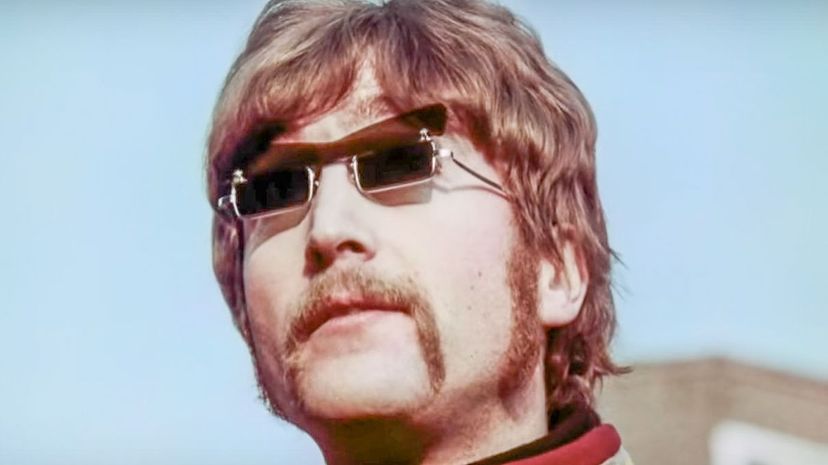
"Blackbird," written by Paul McCartney, was released in 1968 on the "White Album." McCartney said he wrote the song after reading about race riots in the United States and the struggles of African Americans. The word "bird" is slang for "girl" in England.
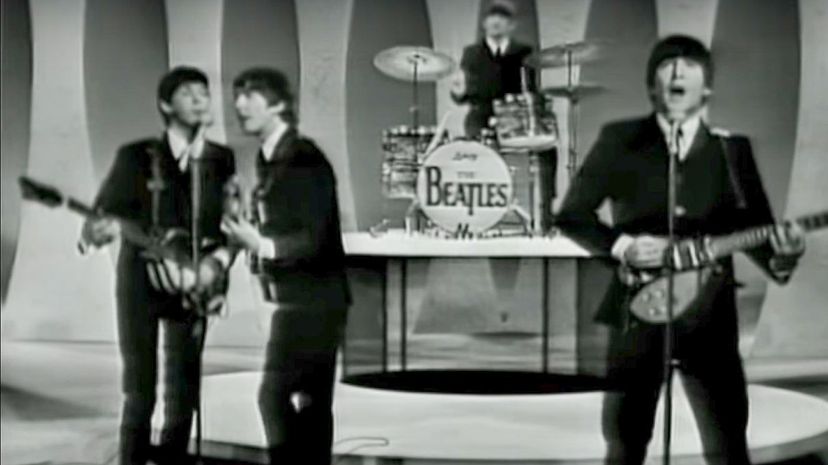
"Ticket to Ride" was the first Beatles song to run longer than three minutes. It was released in 1965 on the "Help!" album, and John Lennon called it one of the first heavy metal songs ever recorded. The song was also used in the film "Help!"
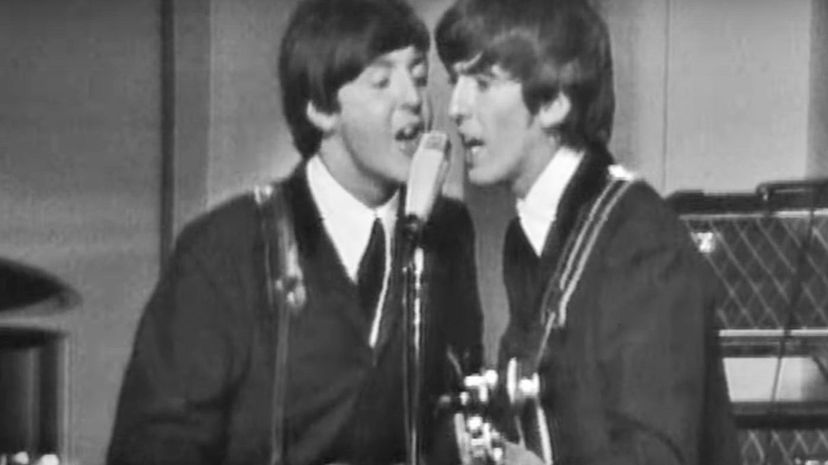
This was the lead song on the Beatles' first studio album, "Please Please Me." In the song, John Lennon asks a girl to please please him. It was recorded and then re-recorded in a faster tempo in 1962.
Advertisement
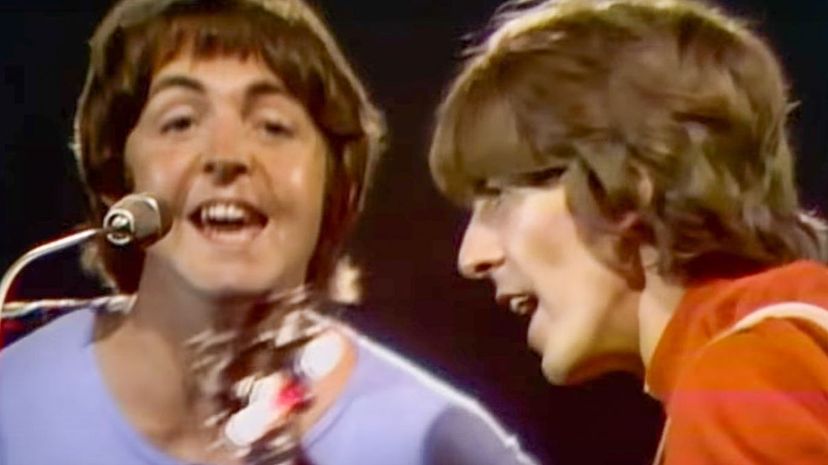
The song "Penny Lane" inspired the theft of many street signs in Liverpool. Paul McCartney thought of the song as he was sitting at a bus stop on the actual Penny Lane, waiting for John Lennon.
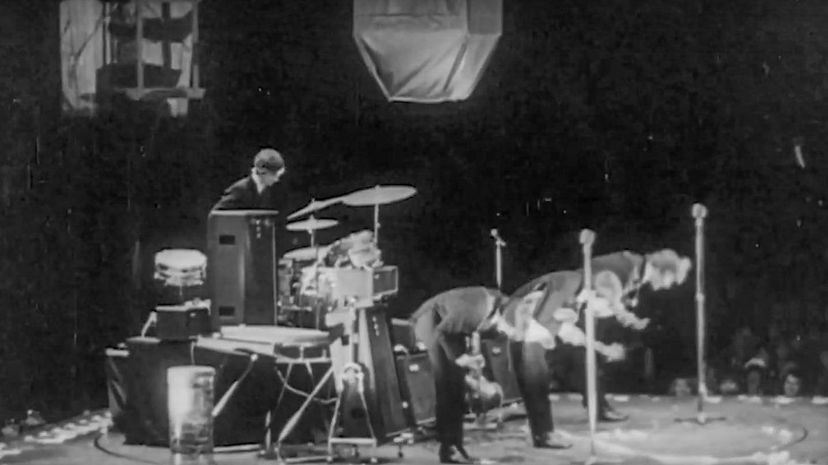
Paul McCartney wrote most of the lyrics to this song, but John Lennon sang the lead. The song was part of 1964's "Beatles for Sale" album but was never released in the U.K. as a single. It hit No.1 on the charts in the United States.
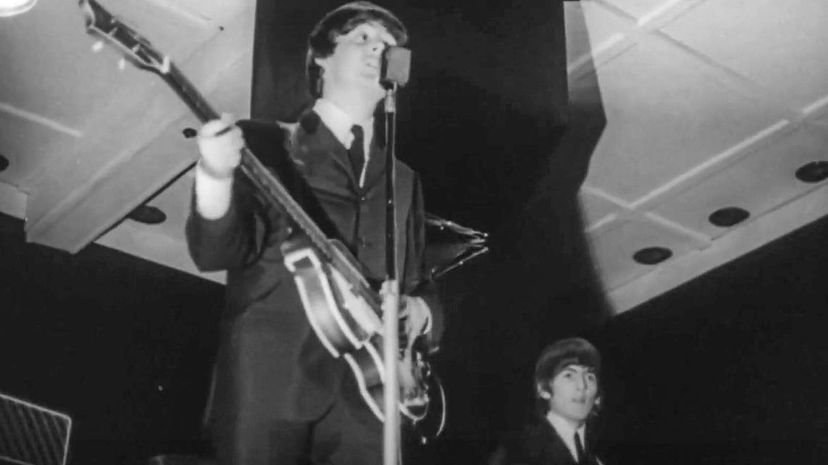
On April 4, 1964, the Beatles had all of the top five spots on the U.S. charts, and "A Hard Day's Night" was one of those songs. It reached No.1 on the charts in both the U.S. and the U.K. Paul McCartney, who wrote the song, is the only Beatle who sings on the track.
Advertisement
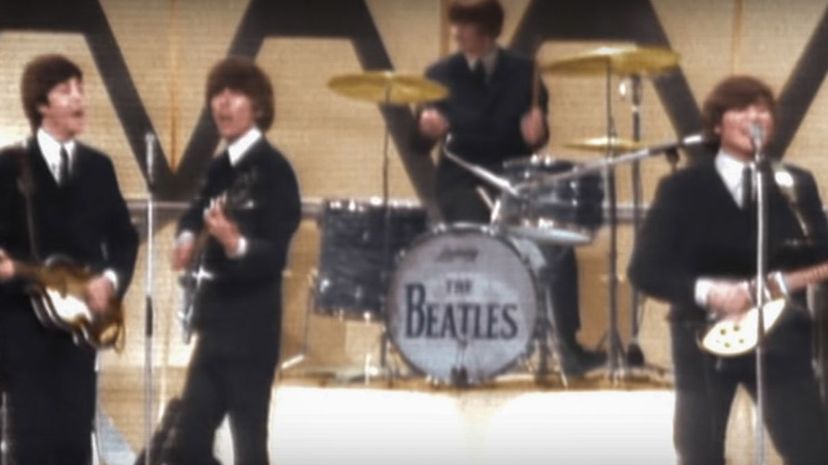
"I Should Have Known Better" was released in the United States as the B-Side of the "A Hard Day's Night" record. It failed to reach the Top 10 in America, but it was released as a single in several European countries and attained much success.
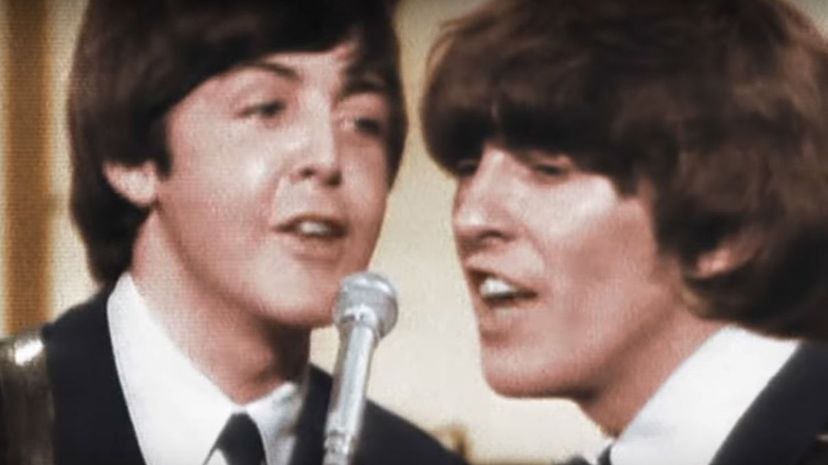
If you listen to this song today, you'll recognize it as one of the most classic Beatles songs, but it only reached No. 45 on the U.S. charts when it was released in 1963. Paul McCartney wrote it as a poem when he was thinking about his then-girlfriend Jane Asher one morning.
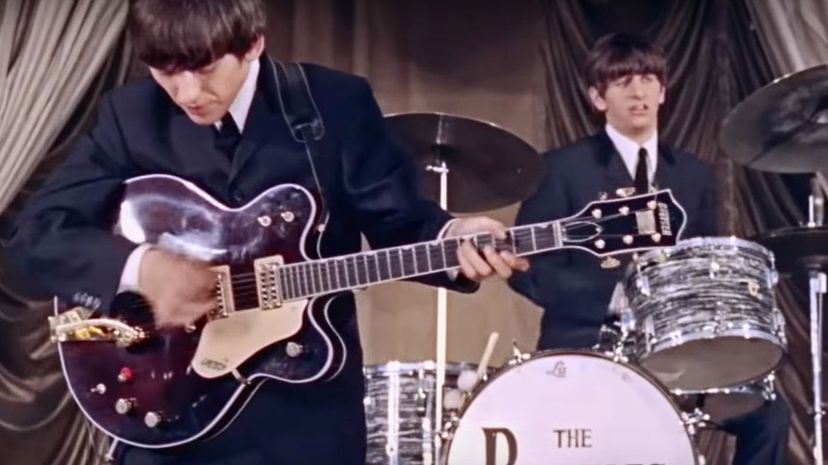
Paul McCartney wrote this song, and it was released in 1966 on the "Revolver" album. The Beatles never played the song live; McCartney finally performed it during a 1991 MTV "Unplugged" appearance.
Advertisement
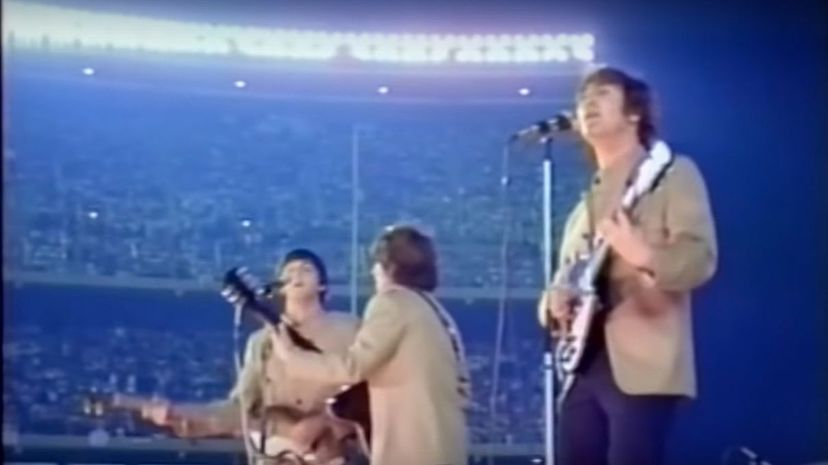
This song was released in 1969 on the "Abbey Road" album. The lyric mentioned above is essentially the last set of words ever recorded by the group - the last line of the last song of the last album the group recorded. Although the "Let It Be" album was released after "Abbey Road," it was recorded before.
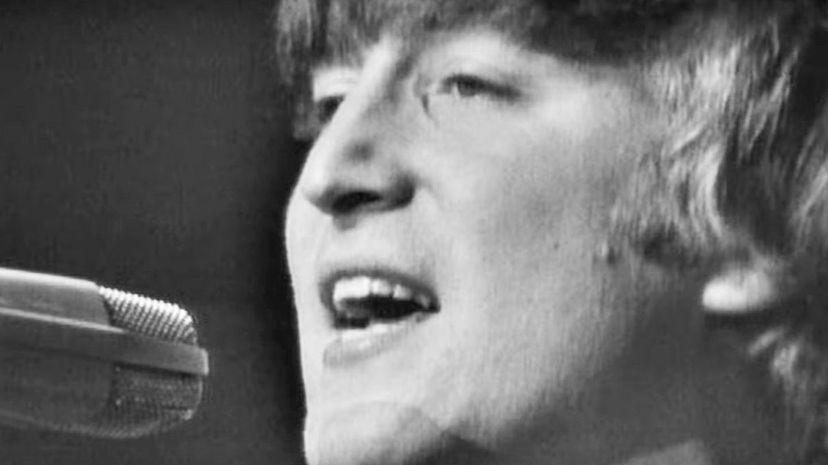
Some Beatles fans swear this song is about drugs, since the title's initials are LSD. However, John Lennon, who wrote the song, denied that and said he didn't even notice the initials. Lennon's son had drawn a picture of a classmate named Lucy among a bunch of stars.